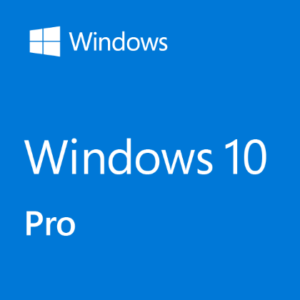
 If you’ve reached the point where your laptop or desktop are in danger of being thrown out of the window in a fit of anger, it’s possibly time to consider upgrading to a newer model; not all problems can be fixed with proactive support, sometimes it’s just time to move on!
If you’ve reached the point where your laptop or desktop are in danger of being thrown out of the window in a fit of anger, it’s possibly time to consider upgrading to a newer model; not all problems can be fixed with proactive support, sometimes it’s just time to move on!
In general we find that business computers have a useful life of three to five years. After that software and operating systems may have moved on to the point where they weigh too heavily on the processing power of your machine. Also, it’s sad but an undeniable fact, that years of software installs, updates and uninstalls do affect performance, something that can really only be resolved by starting afresh.
I would say that there are three main things to consider when purchasing a new computer for your business (and remember, this applies to laptops and desktops); Operating System, Processor and Quality.
Now, at this point, some people are jumping up and down shouting “RAM” and “DRIVE”. We’ll take it as read that any decent business machine will have a minimum of 256GB SSD (Solid State Drive, the advancement of the old mechanical Hard Disk Drive) and a minimum of 16GB RAM (System Memory). I would suggest that these are the baselines for a business class machine, if you can afford more, great, but at least at this level you will get good performance from your investment.
Operating System
 I’m assuming that we’re all on the same page and that we’re discussing Windows machines at this point. Apple devices are amazing. They are built well, tested rigorously and have an undeniable advantage in the creative sectors. But the simple fact of the matter is that Apple has never achieved much more than a 20% penetration in the business computer market. The business world runs on Microsoft Windows.
I’m assuming that we’re all on the same page and that we’re discussing Windows machines at this point. Apple devices are amazing. They are built well, tested rigorously and have an undeniable advantage in the creative sectors. But the simple fact of the matter is that Apple has never achieved much more than a 20% penetration in the business computer market. The business world runs on Microsoft Windows.
My point when it comes to Operating Systems is that for a business class device you must have Windows 10 PRO. Pro comes with a number of features that are not present in the cheaper Home version. For example, drive encryption (an essential part of any competent data security policy) only comes with Windows 10 Pro. You cannot join a Windows Home PC to a domain (local or cloud) which is pretty much a basic necessity if you’re in business. And there are other local security settings that only come with the enhanced version.
I should also mention that if you have a computer now that is currently running any other version of Windows than Windows 10 upgrading should pretty much become your number one priority in life! Older versions of operating systems become unsupported and any security vulnerabilities will not be addressed.
Processor
The second major decision that you have when thinking about a new Business computer is what processor you want.
Intel undoubtedly has the dominant position here. Their 11th Generation processors launched earlier this year delivering the highest performance and comprehensive hardware based security. They claim to have “Up to 23% faster productivity than the competition when using apps like Office 365 and the best business collaboration experience, enabling more than 50% faster office productivity compared to the competition while on a video conference call.”
 You can decide how much you want to believe the marketing spiel, but they are undoubtedly great chips!
You can decide how much you want to believe the marketing spiel, but they are undoubtedly great chips!
In terms of buying options, the most recent or previous generation of chip will be the way to go. (As at time of writing in Summer 2021, 11th or 10th Generation).
Look also at the name of the chip. You want at least an i5 but, if you can afford it, a lot of businesses use i7 processors. The most powerful (i9) will probably only be for those who have to have the newest car as well!
Quality
I’m not going to say “You must buy X brand” here – quite the opposite in fact, we’ve seen some household names sell computers of appalling quality over the years.
My point is that you really do get what you pay for in IT (just like everything in life!) and if you’re considering a new computer for your business then it’s worth paying a little extra to make sure that the components used in its construction are well sourced.
Things can change on this front quite quickly. One year Brand X might be in the ascendance the next it might be Brand Y. If you are not in the industry, it’s well worth talking to your IT Service provider to find out their expert recommendation. They are the ones dealing with hardware like this day in and day out and they will be able to tell you first hand about the experiences they have had with certain brand of computer.
So there we have it. In a nutshell:
That should see you through for the next three to five years.
And do remember to take the advice given to you by your expert advisers; they should be operating on the principle of “Best Advice” and giving you just that!

Empowering London Businesses with Efficient IT Solutions to Save Time and Stay Ahead of the Competition.